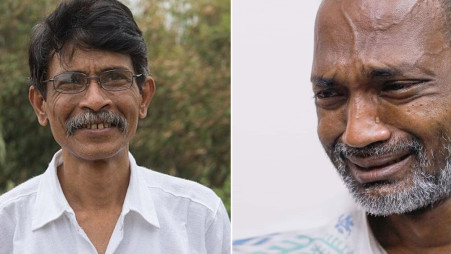When even a good law can’t protect you
More than 500 incidents of custodial deaths took place till last year since enactment of the Torture and Custodial Death (Prevention) Act in 2013

Custodial death of writer Mushtaq Ahmed and torture inflicted on cartoonist Ahmed Kabir Kishore as narrated to media by him after his release from jail have exposed afresh the lack of enforcement of a highly praised law to protect the people's rights and dignity.
Both were detained in cases filed against them for "tarnishing the country's image" under the controversial Digital Security Act and denied bails several times.
The members of the law enforcement agencies who picked them up and allegedly tortured them did not care about the Torture and Custodial Death (Prevention) Act, 2013 that prohibits both mental and physical torture in any situation and death in custody of law enforcement agencies.
In brief, the anti-torture law could not protect Mushtaq and Kishore from alleged torture by a group of law enforcers.
More than four years ago, the Supreme Court, in a judgement against the law enforcers' arbitrary use of powers, had stressed the need for proper enforcement of the anti-torture law.
The significance of this law is immense in order to establish the rule of law. "By this law, the safeguards of human dignity, personal liberty, undue harassment and torture of a detainee at the hands of law enforcement agency, deprivation of life and liberty, honour and dignity have been protected," said the SC.
"This is one of the finest pieces of legislation so far promulgated after the independence of the country. This law reflects the aims and aspirations of the country's founding fathers while framing the constitution," observed the apex court.
But what happened to Mushtaq and Kishore tells a different story, unfortunately.
Their experiences undermine the constitutional provision which provides safeguard against torture as the constitution in the article 35(5) declares without ambiguity: "No person shall be subjected to torture or to cruel, inhuman, or degrading punishment or treatment."
The anti-torture law has been enacted by the parliament to enforce the above constitutional provision. The law provides minimum punishment not less than five years and maximum life term imprisonment with a fine for crimes committed under it.
Enactment of the anti-torture law has also brightened Bangladesh's commitment to the international community.
In 1998, the country signed the UN convention against torture, and cruel, inhuman or degrading treatment or punishment. As a signatory to it, Bangladesh had promised to create effective legislation, and to take administrative, judicial or other measures to prevent acts of torture in its territory.
But the enactment of the law against torture and custodial death could not bring an end to the menace. More than 500 incidents of custodial deaths took place till last year since enactment of the law in 2013, according to Ain O Shalish Kendra (ASK).
Incidents of torture, allegedly by the law enforcers as defined by the anti-torture law, is rampant. But only a handful cases were filed under this law.
The first verdict came last September in a case filed under this law as a Dhaka court sentenced three of the accused policemen to life imprisonment and two others to seven years in jail on charge of torturing a Mirpur businessman to death in police custody in 2014.
Four years ago, in 2017, the apex court in the landmark verdict against the police's arbitrary use of powers expressed dismay at the lack of enforcement of the anti-torture law.
The reason behind poor enforcement of the law is clear. The law enforcement agencies did not like some provisions of the law that makes torture and custodial death criminal offences.
In 2015, they sent proposals to the home ministry for major changes to the anti-torture law and wanted safeguards from prosecution for custodial death and torture. They wanted to exclude themselves from the purview of the anti-torture law.
With many members of the law enforcement agencies bothering little about the anti-torture law, they have however demonstrated hyper activeness in the enforcement of the DSA to detain people and to curb their freedom of speech.
Only last year, as many as 457 people of all professions were prosecuted and arrested in 198 cases filed under this law, according to UK-based Article 19.
Point to be noted that our parliament has made both the laws and so its image depends on the use and abuse of the laws.
The digital security law has faced strong condemnations since it was made in 2018. The death of Mushtaq and alleged torture of Kishore has drawn afresh huge condemnation against it.
On the other hand, the law which was highly praised by the apex court remains largely unused contributing to unstrained exercise of powers by the law enforcers.
Our Jatiya Sangsad, that made both laws, remain nonchalant to the abuse of one and non-enforcement of the other though it is the constitutional duty of the House to review the enforcement of laws and propose measures for such enforcement.
So, when the parliament remains blind to abuses, it appears as a blessing for those who are allegedly involved in abusing the laws.



 Keep updated, follow The Business Standard's Google news channel
Keep updated, follow The Business Standard's Google news channel















